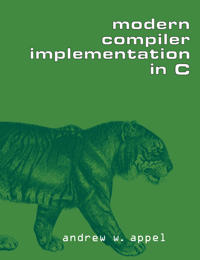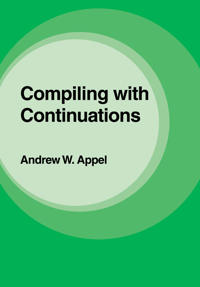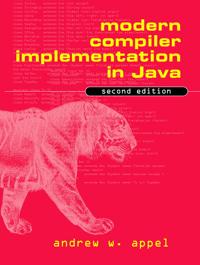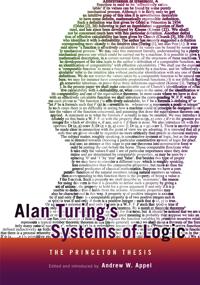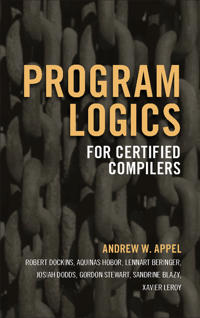Modern Compiler Implementation In C (Pocket)
avAndrew W. Appel, Maia Ginsburg, Andrew W. Appel
ISBN: 9780521607650 - UTGIVEN: 200409This new, expanded textbook describes all phases of a modern compiler: lexical analysis, parsing, abstract syntax, semantic actions, intermediate representations, instruction selection via tree matching, dataflow analysis, graph-coloring register allocation, and runtime systems. It includes good cov[...]
Compiling with Continuations (Pocket)
avAndrew W. Appel
ISBN: 9780521033114 - UTGIVEN: 2007-02The control and data flow of a program can be represented using continuations, a concept from denotational semantics that has practical application in real compilers. This book shows how continuation-passing style is used as an intermediate representation on which to perform optimisations and progra[...]
Modern Compiler Implementation In Ml (Pocket)
avAndrew W. Appel
ISBN: 9780521607643 - UTGIVEN: 2004-07-08Modern Compiler Implementation in Java (Inbunden)
avAndrew W. Appel, Jens Palsberg
ISBN: 9780521820608 - UTGIVEN: 200210This textbook describes all phases of a compiler: lexical analysis, parsing, abstract syntax, semantic actions, intermediate representations, instruction selection via tree matching, dataflow analysis, graph-coloring register allocation, and runtime systems. It includes good coverage of current tech[...]
Alan Turing's Systems of Logic (Inbunden)
avAndrew W. Appel
ISBN: 9780691155746 - UTGIVEN: 2012-05Between inventing the concept of a universal computer in 1936 and breaking the German Enigma code during World War II, Alan Turing (1912-1954), the British founder of computer science and artificial intelligence, came to Princeton University to study mathematical logic. Some of the greatest logician[...]
Program Logics for Certified Compilers (Inbunden)
avAndrew W. Appel, Robert (CON) Dockins, Aquinas (CON) Hobor
ISBN: 9781107048010 - UTGIVEN: 2014-04Separation Logic is the twenty-first-century variant of Hoare Logic that permits verification of pointer-manipulating programs. This book covers practical and theoretical aspects of Separation Logic at a level accessible to beginning graduate students interested in software verification. On the prac[...]

